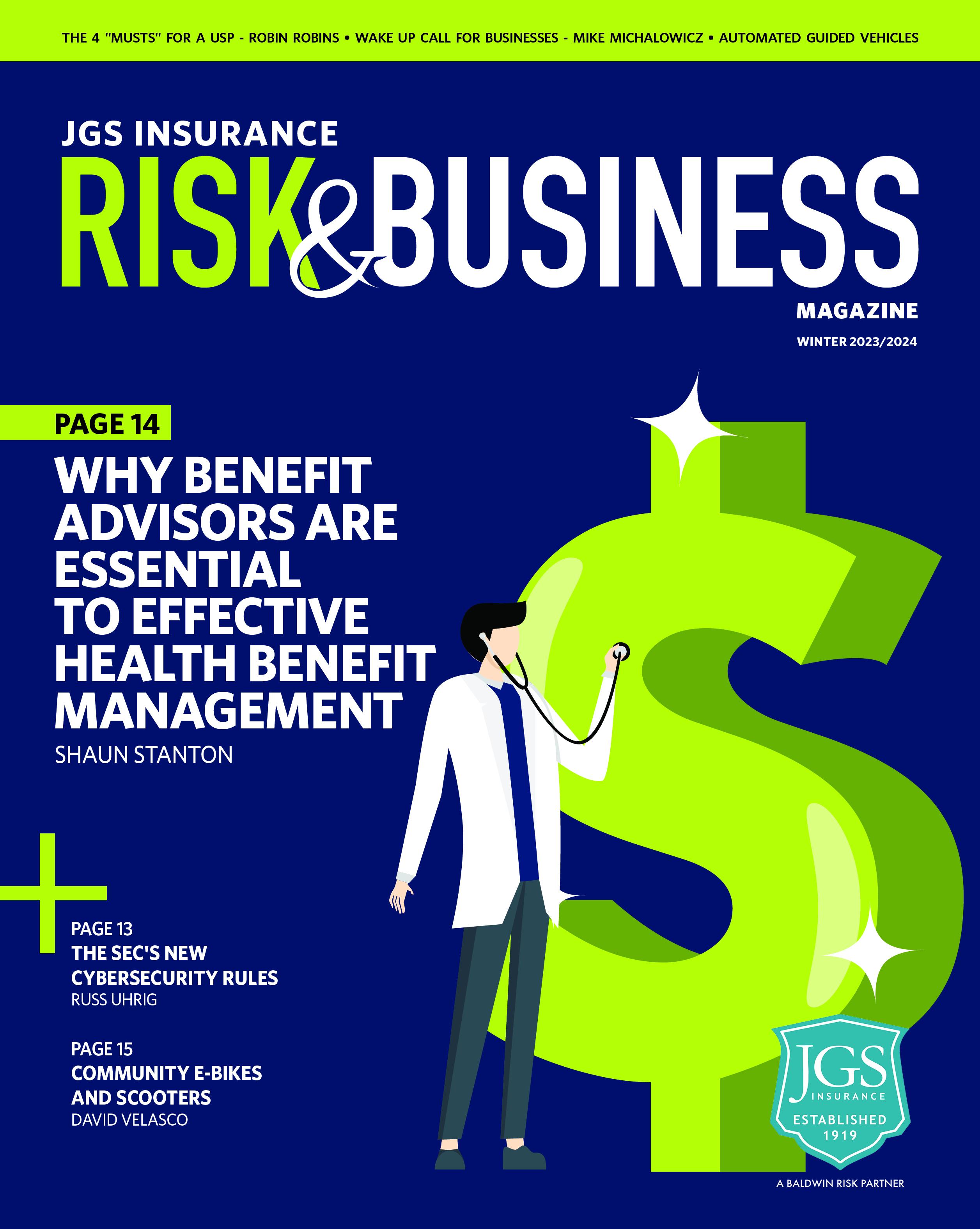By Meaghan Tyndale-Williams, Vice President – Commercial Lines
It isn’t a matter of if an organization will experience an employment practice related claim; it is only a matter of when. In fact, according to Advisen, a leader in data solutions for the commercial insurance market, an employer with as few as 100 employees can expect a claim once every three years.
Employment practice related claims are increasing, and the costs associated with defending such claims can be staggering. Perhaps most unnerving is that an organization doesn’t have to be in the wrong to face a potential lawsuit. Even the best corporate policies and procedures may not deter a lawsuit, making the purchase of employment practice liability insurance a crucial and necessary component to a company’s overall risk management portfolio.
Employees Equal Exposure
It’s simple. If an organization has employees, it needs an employment practices liability insurance (EPLI) policy. These policies cover the cost of defending EPLI claims and damages awarded to an employee for wrongful acts committed by the employer.
However, each EPLI policy has very specific wording on exactly which wrongful acts are indeed covered. In general, most EPLI policies provide the following coverage:
- Defamation
- Discrimination
- Failure to Provide Equal Opportunity Employment
- Harassment
- Retaliation
- Violation of the Family and Medical Leave Act (FMLA)
- Wrongful Discipline
- Wrongful Failure to Promote
- Wrongful Termination
The hiring, disciplining, promoting, and training of employees requires more human interaction than practically any other aspect within a business. Because of this, the exposure to employment practices liability extends to past, present, and even prospective employees.
Wage and Hour Claims
A common exclusion on most EPLI policies is claims related to wage and hour. Laws pertaining to wage and hour fall under the Fair Labor Standards Act (FLSA). The Act establishes minimum wage, overtime pay, recordkeeping, and child labor standards.
Common claims include jobs which have been misclassified or the denial of overtime. And with our ever-improving technology, claims for “off the clock” work, ranging from checking emails to responding to text messages, have increased. In each scenario, an employee is paid less than what has been assured to them under federal law.
Although coverage for wage and hour claims can be added to an EPLI policy, it will come at an additional cost. Claims related to FLSA are on the rise as employees themselves become more knowledgeable about their rights under the Act.
The Third Party
In addition to wage and hour claims, third-party claims are also commonly excluded from EPLI policies. Also available for an additional premium, third-party coverage can protect an organization from outside vendors, customers, or other individual claims.
For example, a delivery driver routinely is sexually harassed by a business’s employee. If the driver were to file a harassment lawsuit against the organization, an EPLI policy which includes third-party coverage would respond.
In today’s highly litigious environment, coupled with increased courage by employees in outing and confronting discrimination, harassment, and other inappropriate acts, businesses are exposed more than ever to a claim. Ensuring your employment practices liability insurance policy will meet the exposures of today’s world has never been more important.
Limits Available
Employment practices liability coverage can often be provided as an endorsement to a business owner’s policy. However, it is a best practice to have a stand-alone policy which may provide broader coverage and not be affected by an underlying policy.
Most stand-alone policies begin with a $1 million limit and increase from there. The limit of insurance typically includes costs associated with settlements, judgments, and legal defense costs. Claims related to wage and hour (FLSA), third-party, and other exposures typically have a lower sublimit associated with them. It is important to note limits may be reduced or their availability shortened during times of mass staff reductions, mergers, or acquisitions.
Cost of Coverage
The cost of obtaining an employment practices liability policy is dependent on many factors including the following:
- Hiring and Firing Procedures
- Management’s Experience
- Number of Employees
- Prior Claims History
- Type of Business
Most policies also include a deductible, which is an amount that must be paid by the insured before a policy will respond to a claim.
Not having an EPLI policy in place not only exposes an organization to the obvious costs associated with a claim, including defense and damages, but also the nonquantifiable costs. When an organization becomes entangled in an employment dispute, morale can decline, negatively impacting productivity. And in more extreme scenarios where claims are made public, a business’s reputation could be at risk.
The costs associated with not carrying employment practices liability insurance outweigh whatever premium your chosen insurance company wishes to charge. If you have employees, you need EPLI.

